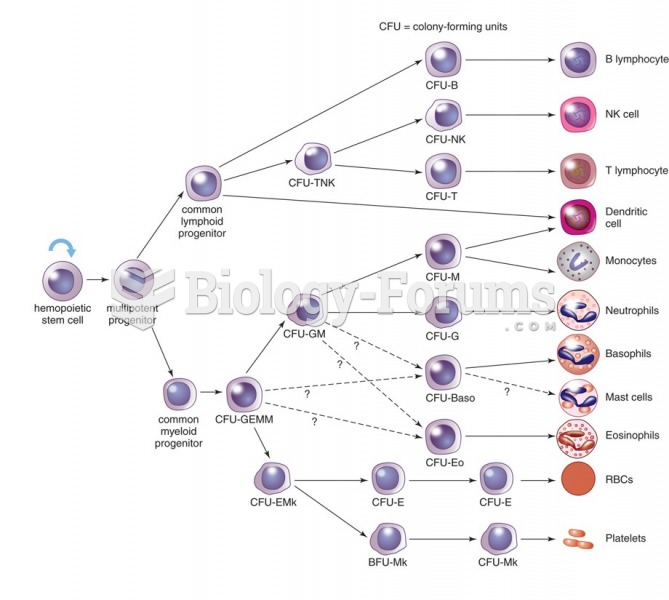|
|
|
Drying your hands with a paper towel will reduce the bacterial count on your hands by 45–60%.
It is widely believed that giving a daily oral dose of aspirin to heart attack patients improves their chances of survival because the aspirin blocks the formation of new blood clots.
Increased intake of vitamin D has been shown to reduce fractures up to 25% in older people.
A cataract is a clouding of the eyes' natural lens. As we age, some clouding of the lens may occur. The first sign of a cataract is usually blurry vision. Although glasses and other visual aids may at first help a person with cataracts, surgery may become inevitable. Cataract surgery is very successful in restoring vision, and it is the most frequently performed surgery in the United States.
The human body produces and destroys 15 million blood cells every second.
 Urinary tract infection. A UTI is characterized by fever, lumbar or abdominal pain, and pain or burn
Urinary tract infection. A UTI is characterized by fever, lumbar or abdominal pain, and pain or burn
 A simple diagram of bone marrow progenitors. All of the cells listed can be transformed to become a ...
A simple diagram of bone marrow progenitors. All of the cells listed can be transformed to become a ...





